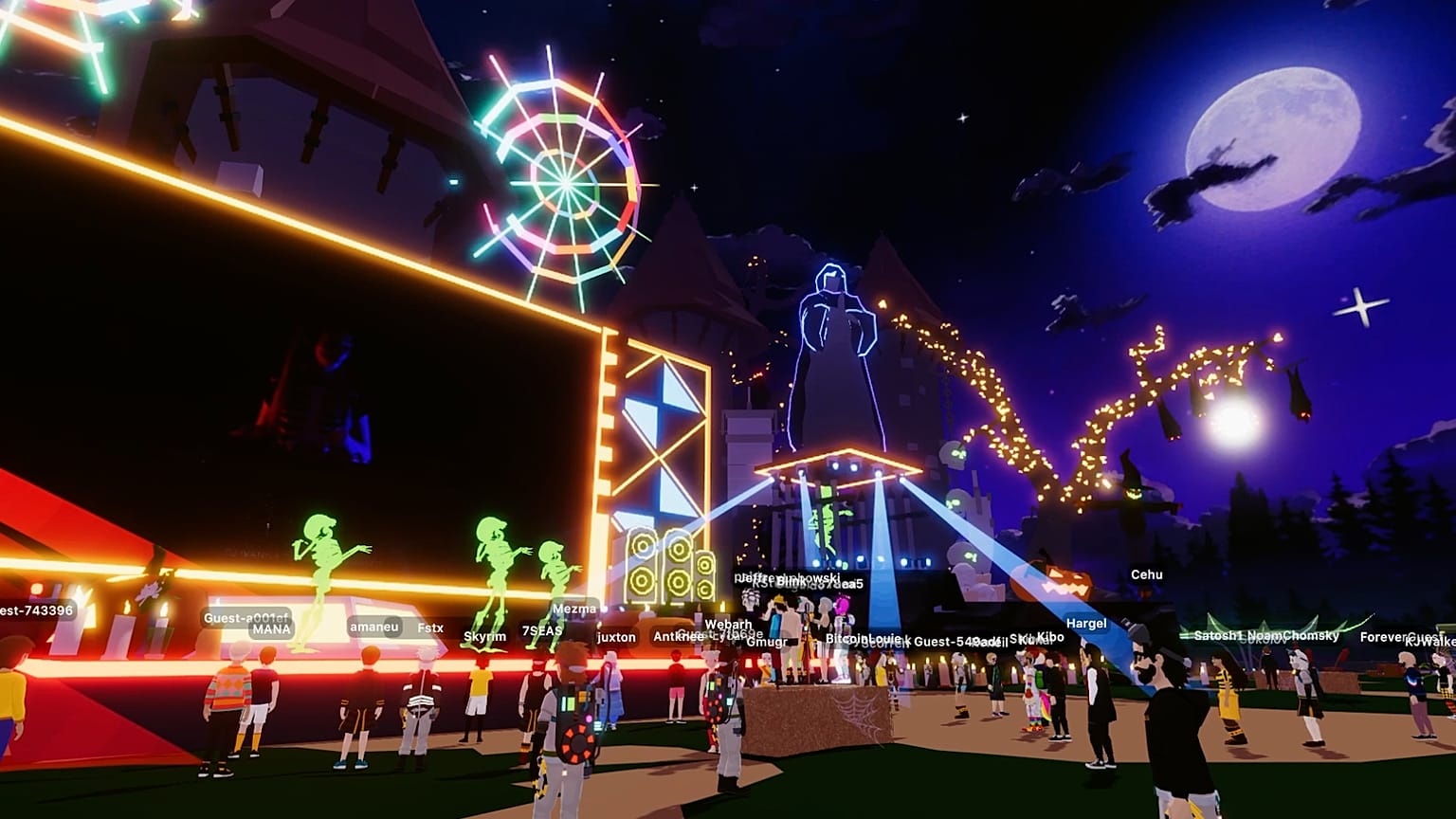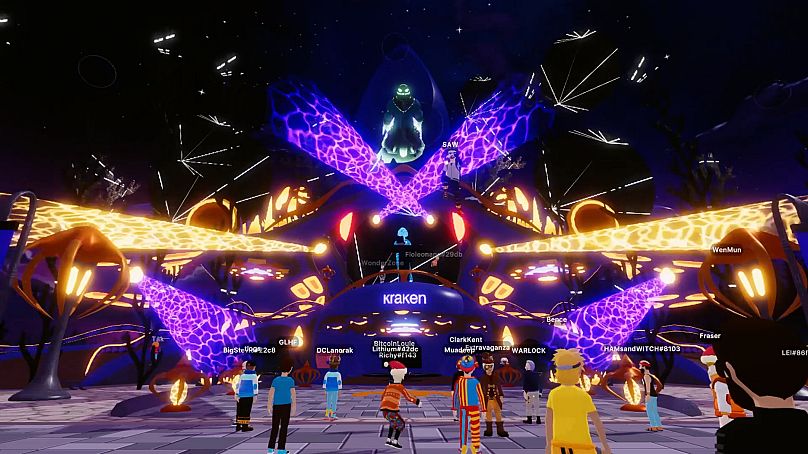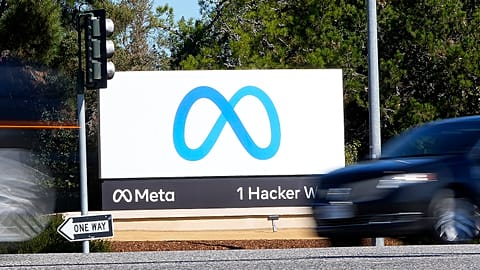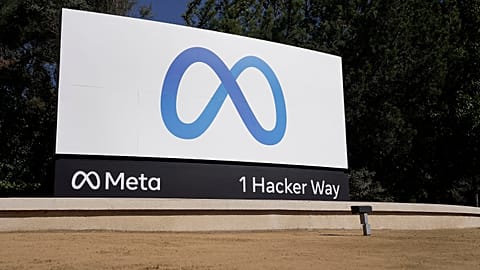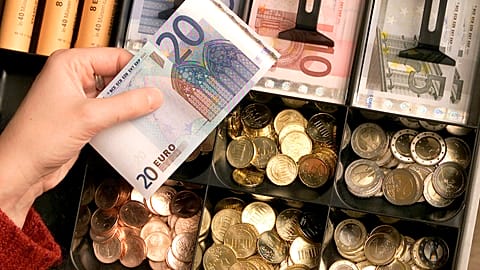There is growing interest in virtual social platforms like Decentraland which bills itself as the first fully-decentralised virtual social world in the metaverse.
If you thought the metaverse was conjured into existence when Mark Zuckerberg announced that Meta was building the “next version of the Internet,” then it may surprise you to learn the metaverse is already an existing, thriving ecosystem - complete with a booming property market.
 ADVERTISEMENT
ADVERTISEMENT
 ADVERTISEMENT
ADVERTISEMENT
In recent days, a plot of "land" sold for €2.1 million in the online social world Decentraland, obliterating its own previous record sale of €810,000 in June.
In Decentraland, users from the physical world can enter, create avatars, buy property, purchase wearables on the marketplace and attend events.
The platform has already hosted a virtual music festival attracting headliners like DeadMau5 and Paris Hilton.
The virtual world is also attracting institutional interest, having recently signed an agreement with the government of Barbados to open the world’s first digital embassy in January next year.
'People who use Decentraland govern it'
Decentraland, which was first opened to the public in February 2020, is built on the Ethereum blockchain and bills itself as the first fully-decentralised virtual world.
"The fact that it is decentralised means that the people who use Decentraland own Decentraland, they govern it," Dave Carr, communications lead for the platform, told Euronews Next.
"We have a decentralised autonomous organisation in which people can submit proposals and vote on proposals submitted by others. And this effectively determines the future direction of Decentraland".
Transactions within this world are made with MANA, Decentraland’s native cryptocurrency, and proof of ownership of virtual property is verified via NFTs.
The value of the coin had already begun to climb during 2021 but in the wake of Meta’s announcement, it rocketed in value.
At the time of writing, the crypto is trading at €4.06 a piece, compared with €0.07 at the beginning of this year.
According to Carr, there are two ways to participate in the governance of Decentraland: you can either hold MANA or be a landowner.
But with the value of MANA soaring and virtual land becoming eye-wateringly expensive, the question remains whether Decentraland can remain a so-called “open metaverse” instead of merely the digital fiefdom of wealthy users or early investors.
"One of the big things that has come up is, 'Oh, have I already missed the boat?' Because land prices in various virtual worlds are expensive, and so I can't really contribute or participate - which is not the case," said Carr.
According to Carr, creators going in and contributing to a piece of virtual land or putting their own wearables on the Decentraland marketplace is "still an opportunity".
Carr also envisions a future Decentraland where renting virtual land becomes an option for those priced out of the digital property market.
"I think land will be another area of virtual worlds that will change dramatically," he said.
"I think you'll see rentals happening, you’ll see subdivision of land".
In addition, users could find a route into the metaverse via gaming communities.
"You already see guilds like Yield Guild Games [a play-to-earn gaming guild], buying up areas of land for their communities to work within and build games for".
But what’s in it for those who have already jumped in and bought up virtual real estate?
"The early landowners, the early investors will want to have content added to their property, because they have a vested interest in the virtual worlds in which they purchase the land," Carr explained.
"They'll want to have that content and those experiences on the land because it brings in people to the virtual world and it just enriches the experience," he said.
Will the Meta metaverse dominate this nascent industry?
Regarding Meta’s announcement on their plans to build the metaverse, Carr concedes that the tech giant and others like it, are likely to have a sizable influence on how the expanded metaverse will develop.
Nevertheless, he believes that there will still be plenty of space for platforms like Decentraland to operate because their structure means they are better placed to cater for those seeking greater autonomy in virtual spaces.
"The assumption is that, given the success of Facebook as a social media platform... you would have to imagine that their version of a virtual world and metaverse services will not be decentralised," Carr said.
"It won't be OK. Let's hand it over to the community and you tell us how you want to run it. You would have to assume based on history that it will be a more centralised experience".
Amongst the community active in the metaverse space, Carr believes the reaction to Meta’s announcement has been mixed.
"When Facebook talks about building the metaverse, if you follow this space on Twitter, you would have seen a lot of backlash talking about 'OK well, the Metaverse has already been built, and it is very active and has a lot of communities and a lot of users in the various virtual worlds,'" he said.
On the other hand, he admits the splashy announcement has brought the word firmly into the mainstream, “which can only be a good thing for the Metaverse generally,” he added.
"I think Meta will create something that is curated and centralised and controllable, which will be fine for some people".
"I don't think that's going to kill other virtual worlds or other metaverse experiences, I think. I think everybody will find their place in the metaverse that suits them".
For more on this story, watch the video in the video player above.














